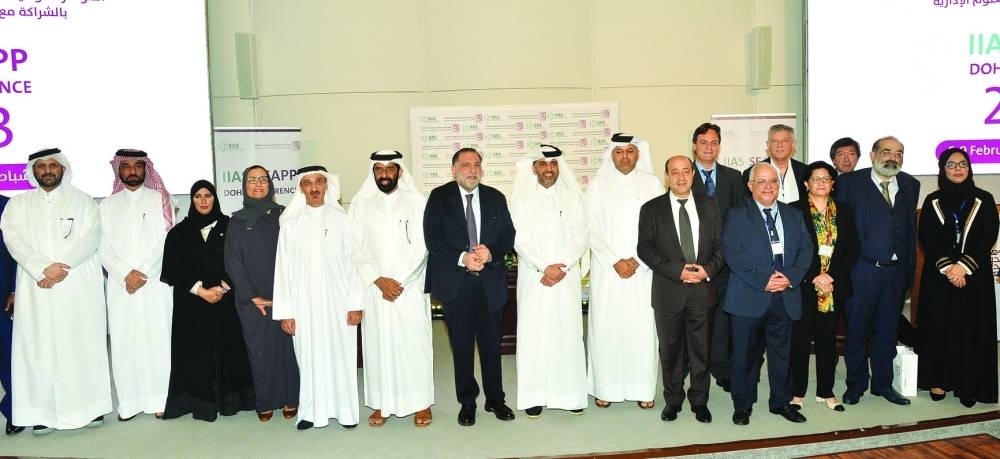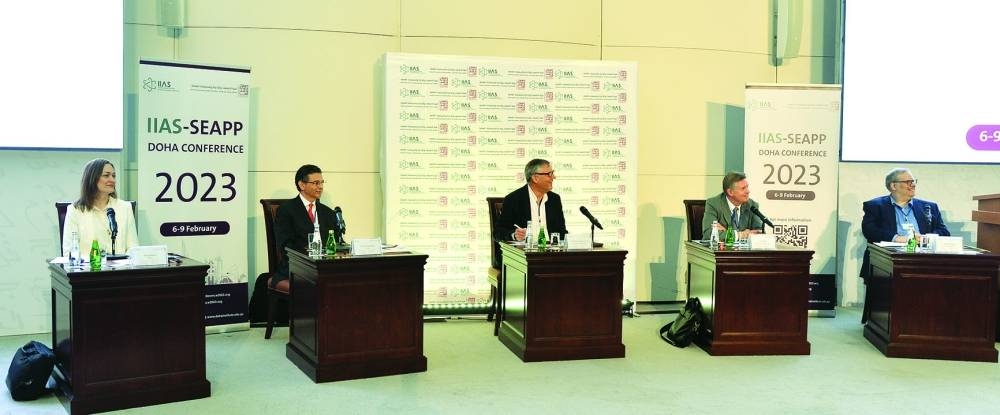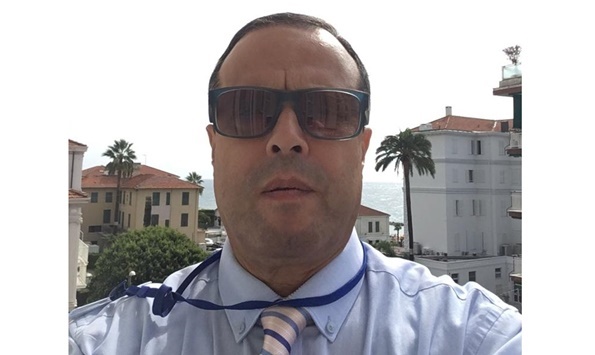Under the patronage of HE the Prime Minister and Minister of Interior Sheikh Khalid bin Khalifa bin Abdulaziz al-Thani, the International Conference on Administrative Sciences was launched Tuesday.
The event is organised by the School of Economics, Administration and Public Policy (SEAPP) at the Doha Institute for Graduate Studies (DI), in co-operation with the International Institute for Administrative Sciences (IIAS).
The three-day event, titled 'Developmental and Professional Countries in Public Administration and Policy Making' is being held at the DI to exchange experiences and knowledge, and enhance government action to address complex policy problems and constraints.
Over 300 participants from 70 countries are taking part in the conference. Topics cover important questions about the developmental capabilities of countries and their contributions to comprehensive development during the 21st century.
Dr Abdul-Wahhab al-Afandi, president, DI, said in the opening speech: “We hope this great event - given the quality and number of participants in it - will contribute to making a qualitative contribution to enhancing development prospects in these anxious global conditions. This is in harmony with the institute's mission aimed at developing social sciences and humanities, promoting professionalism, and putting them at the service of man.”
Dr al-Afandi added that professionalism in management and administrative sciences is one of the most important pillars of the development process, for which money and other resources are indispensable.
Dr Hamed Ali, dean of the SEAPP stressed that “the conference comes at an important time when the world is recovering from the Covid-19 pandemic and when economies are threatened with stagnation due to the war in Ukraine, which makes the role of the state essential, and crucial in mitigating negative impacts and designing policies that advance long-term development goals.” He explained that the conference is bringing together not only academics, but also specialists in policy and industry from various governments, think tanks and non-governmental organisations, to advance the technocratic aspect of politics and administration. The aim is to achieve the desired development of states through professional institutionalisation, bureaucracy, capacity building, and effective distribution of resources.
Dr Raed bin Shams, president of the IIAS, indicated that this conference is promising with many experiences and expertise from inside and outside the region. He pointed out that the pursuit of unprecedented crises around the world places on the shoulders of management experts and professionals, academics and researchers the task of focusing on the advancement of states and ways of managing them.
Dr bin Shams stated that all must strive to achieve the maximum public interest to promote justice at all levels around the world, and learn from all disciplines and experiences to understand and respect the differences, driven by the common values and beliefs. He stressed the need to serve on the basis that countries are not companies, citizens are not customers, and that experts and academics have the same goal but use different means to serve one end - the citizen.
The conference deals with research and study on comprehensive and broad topics. It highlights the cases of governments and developmental states, and the critical tools for developmental states to achieve the Sustainable Development Goals. Within the sessions of the first day, the participants discussed several axes and research papers that focused on professionalism in public administration and public policies for comprehensive development, developing states for sustainable development, developing states and global challenges, public administration reforms in post-conflict countries, family policies in the Arab Gulf, and other related topics.
Today, researchers and experts will discuss several themes, most notably 'Rethinking the Role of Sport in Public Governance and Civil Society', 'Sustainable Partnerships between the Public and Private Sectors in the Middle East and North Africa,' 'Cities and Global Challenges', in addition to a discussion on Crisis Management and Disaster Control in Japan: Theoretical Observations and Practical Experiences.
The conference will conclude tomorrow after discussing topics including the challenges and directions of human resources management in the GCC countries, developing countries and good governance and the role of training and consulting centres in supporting national institutions.

Dignitaries during a photo call at the conference. PICTURE: Shaji Kayamkulam

A panel discussion on 'Developmental States for Sustainable Development' at the conference. PICTURE: Shaji Kayamkulam

